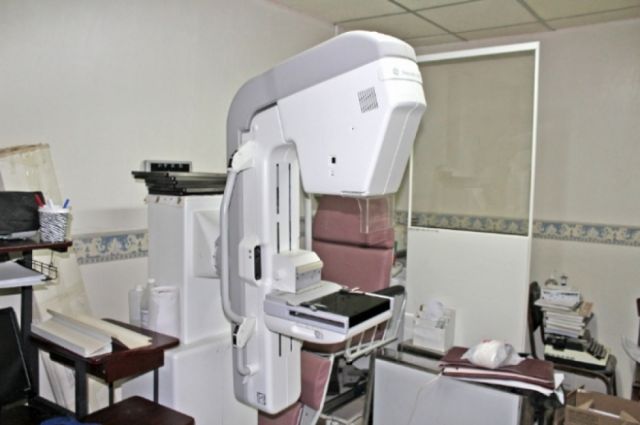Since 2015, the mammogram had faults, for which it was subjected to repairs. But two months ago it stopped working completely. The equipment helps in the detection of cancer
The only mammographer in the public sector in the department of Tarija went bankrupt; it had reached its useful life. This medical team that is in the San Juan de Dios Regional Hospital (HRSJD) helped to detect breast cancer, the second most frequent that affects the population.
Since 2015, this equipment had constant failures, which is why it was subjected to repairs. But two months ago it stopped working completely. The administration believes that it is convenient to have a new one, but they will see if it can still be repaired.
The point is that when it was still working, until before the pandemic, there was no demand from the female population; in the best of cases, five mammograms were done a week, one per day on average. Now, without this equipment, the prevention or early detection of this disease will be almost nil.
Marcelo Ugarte, deputy director of the San Juan de Dios Regional Hospital (HRSJD), explained that the mammography machine stopped working two months ago. He regretted that the pandemic has not made it possible to prioritize some areas of health, since they lagged behind, as in the case of that medical team.
The doctor explained that they are taking steps to acquire a new one or make a massive repair of that equipment.
“All health is important, but we need to join forces to find solutions. Unfortunately, the mammography machine has already reached its useful life. At present, it is in the process of buying a new one or doing a massive repair of this equipment, ”commented Ugarte.
Breast cancer
Jorge Pérez, head of the Cancer Program of the Tarija Departmental Service (Headquarters), explained that the mammography exam was free, but there was no demand from the population, despite being an exam that helps detect some alterations that could be breast cancer .
And it is that the earlier it is detected, the greater probability of success in the treatment. But, in general, patients who come to the program to receive help for their chemotherapies, arrive in advanced stages, when it is more difficult to reverse the disease and in some cases it only remains to apply palliative care.
The doctor explains that this is the importance of having a mammogram, but also working to promote this service, because people are not used to undergoing these types of examinations, they go directly to the hospital when they can no longer bear the disease.
In Bolivia, it is estimated that there are around 12 cases of breast cancer every day.
Roberto Baldivieso, a gynecologist, in a past interview explained that there are two types of criteria for performing a mammogram: one is that women over 45 years of age must undergo a study per year; but if there are risk factors, such as relatives who suffered from this type of cancer, it should be done from the age of 35.
The Autonomous Universal Health Insurance of Tarija (Susat), which is currently in a kind of status quo, contemplated the reconstruction of breasts for women who have suffered from cancer, because an alternative to overcome the disease is to remove the breast, which it will also generate a greater psychological impact and self-esteem.
SUS Law does not include resources for maintenance
Marcelo Ugarte, deputy director of the Regional Hospital San Juan de Dios de Tarija (HRSJD), explained that the Law of the Unified Health System (SUS) does not contemplate resources for the maintenance of medical equipment, it can only be used for other budget items for the care of the patients. This is how you can see how to do preventive maintenance of the tomograph with the hospital’s own resources, so that later on that service is not affected.
–
Support independent journalism
You have free access to 200 notes per month. To have unlimited access and many more benefits, acquire your Digital Subscription. Start your Free Trial now
Are you already subscribed? Don’t forget to log in
To access
If you are interested in a corporate or institutional subscription, call us at (+591) 69316133
–
–

